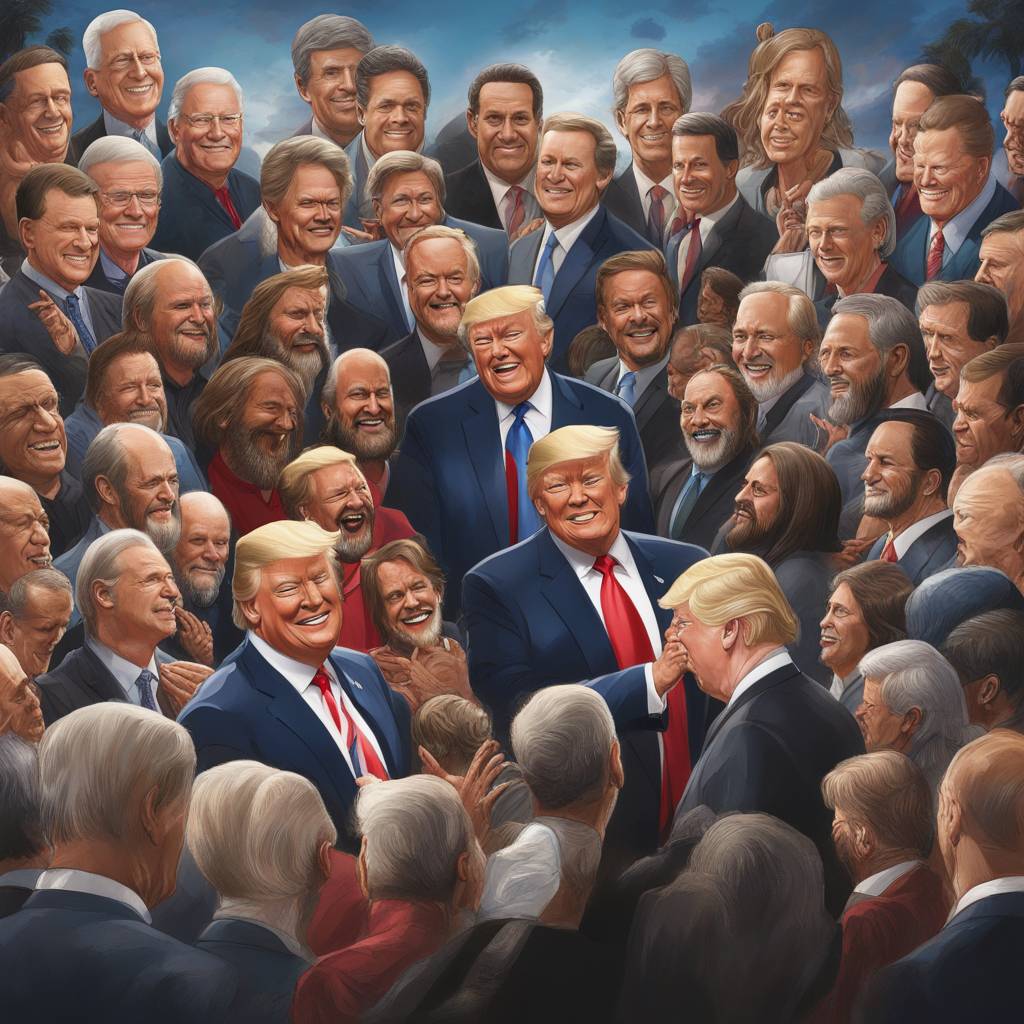The evangelical embrace of Donald Trump is evident, but somewhat of a mystery to many. The New York Times suggests that Trump is blending religion and politics to draw supporters into what they call the “Church of Trump.” While candidates have been mixing religion and politics for years, Trump’s approach stands out. President Biden, a church-going Catholic, shared Easter wishes while Trump, who has been selling Bibles for profit, criticized alleged enemies in his Easter message. The Times accuses Trump of trying to create a “Church of Trump” by ending his rallies with what seems like an evangelical call to action.
Despite efforts to paint Trump as a messianic figure, he has mostly avoided speaking in such terms. Various supporters have compared him to a religious leader or martyr, despite his controversial past and lack of religious affiliation. The comparison to Jesus during Easter is particularly provocative, with one columnist likening Trump’s legal troubles to the crucifixion story. There is a noticeable fusion of Christianity, nationalism, and Trump’s persona, turning voting into an act of religious devotion rather than democratic choice.
Critics, such as Andrew Sullivan, point out the dangerous and divisive nature of this trend, arguing that it transforms politics into a religious duty rather than a civic responsibility. Sullivan criticizes both the right for exploiting Christianity and the left for embracing extremist ideologies, leading to increasing polarization and hostility between the two sides. However, the idea of Trump as a flawed but superior alternative to Biden on certain issues resonates with his evangelical base, who see him as a defender of conservative values, particularly on abortion.
The complexity of Trump’s appeal to evangelicals lies in their view of him as a flawed yet persecuted figure, standing up against what they see as oppressive forces. This narrative challenges the media and other critics to understand why his supporters remain loyal despite his legal troubles and controversial behavior. Trump’s ability to tap into the fears and frustrations of marginalized communities and present himself as a fighter against perceived injustices has solidified his connection with his evangelical base. The tension between Trump’s unconventional persona and his evangelical following underscores the deeper divisions within American society.


